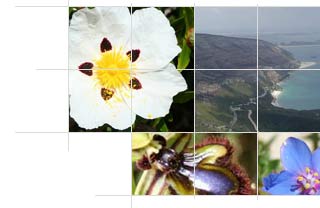Introduction: Integration of Plant and Microbial Sciences at Part II
“Loved it. Well-structured and well taught.” Part II Exit survey.
Fundamental to all our futures
Plant Science is the fundamental life science. There has never been a more exciting time to study plants. They are the focus of key global issues: How to feed an additional 2‐3 billion people; how to replace fossil fuels; how to maintain biodiversity in the face of climate change. Our course prepares you for these challenges, from the marriage of conventional crop breeding to transgenic methodologies, to the sustainable development of bioenergy crops and their processing, and likely direct or indirect effects on carbon emissions and sequestration by plants. Microbes are integrated throughout the course, whether used in synthetic biology, as models of cellular development, or learning how phytoplankton and bacteria can help to generate sources of second and third generation biofuels.
You will be joining a friendly, department with an outstanding teaching record that enjoys working with you. You will be working in internationally renowned research groups involved in generating step changes in plant productivity, protection and conservation.
The choice is yours
Modularity means that you can specialise for an entirely molecular Plant Sciences degree, an entirely ecological Plant Sciences degree, or a degree with a significant microbiology component or all in combination ‐whatever suits your interests!
Helping you be the best
We offer personal development sessions to help you make the most of Part II learning. Whether digesting the literature, writing up practical work or improving essay style, we add value to your learning. The Department offers dedicated library facilities, and a warm welcome in the tea room.
Successful futures
The majority of our class gain a 1st or IIi, and typically over 30-60% improve their grade from IB. Year on year, our Part II students co-author research papers with us (e.g., Science 350, 1521). In 2017 the top-ranked NST Biological Sciences student was from Plant Sciences. The majority go on to post-graduate research, not only in plant sciences but also in other biological disciplines such as neurosciences, pharmacology, or in mathematical/engineering fields. Our graduates have successful careers in or out of science. We hope that you will join us!
Interested?
This section will tell you most of what you'll need to know about the course structure but please do contact the module co-ordinators or any of the teaching staff involved if you'd like more information. Appointments with staff can be made in the Easter Term if you want to discuss in more detail how to match your degree with your interests.
Online resources are provided through the Moodle Site. You will automatically be subscribed to this site as part of the NST IA subject choice procedures but if you join the course after the start of term, send an email to ugadmin@plantsci.cam.ac.uk requesting that you are added to the course. You will need to use your Raven ID and password to log onto Moodle, which you will also be able to access during the vacation.

